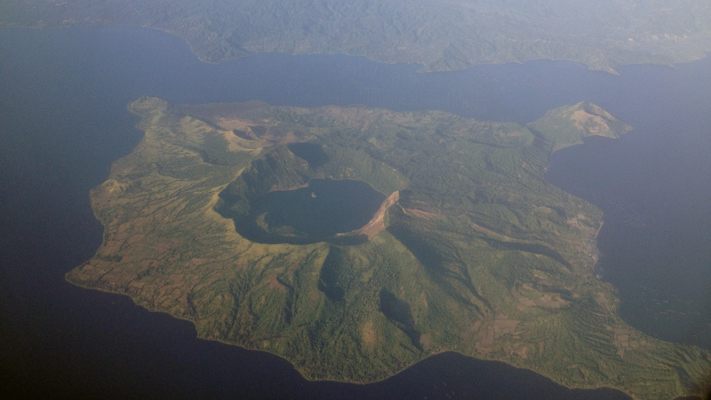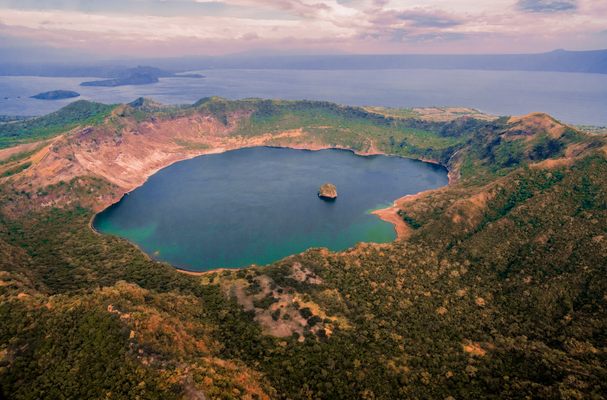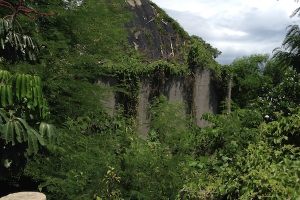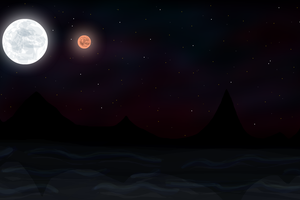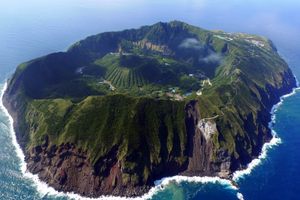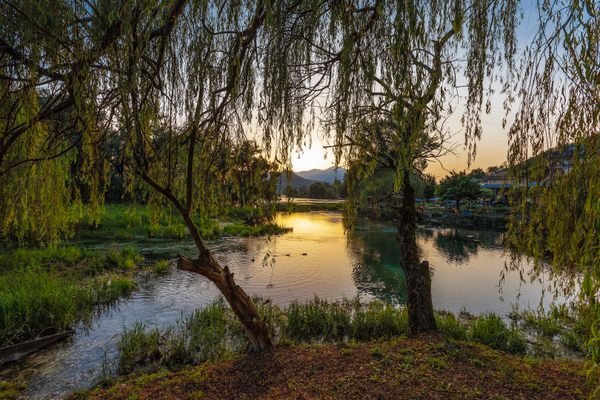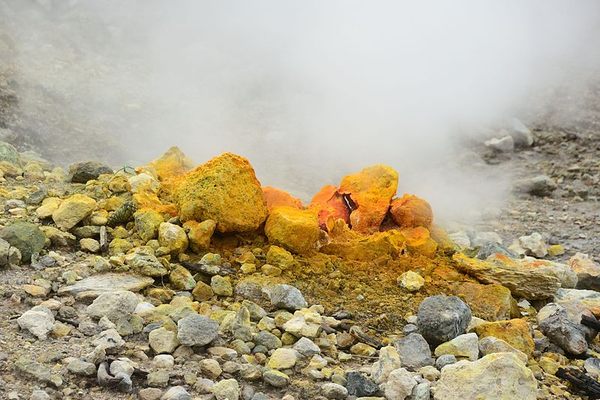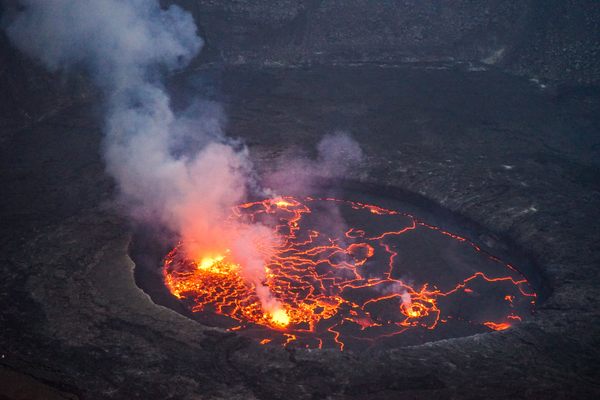About
The paradisiacal beauty of Lake Taal, on an island in the archipelago known as the Philippines, belies the mammoth terror at its center: a highly active volcano that has taken thousands of lives and has been roiling since 1991 after a dormant period following its 1977 eruption. With 33 recorded eruptions, the Taal Volcano is the second most active volcano in the Philippines and a part of the Pacific's "Ring of Fire," a large swath of the Pacific known for its earthquakes and active volcanoes. Despite the active seismic activity, this place is rather popular with tourists. Once at the Taal Lake shore, travelers take a boat to reach the volcano island, where they either hike up the hill or ride a horse.
But the Taal Volcano is more than that. The region has some strange geological features that attract visitors from around the world. The way the features are arranged is something like nesting dolls. On the Filipino island of Luzon is Lake Taal. Within that lake is a volcano, Taal Volcano.
At the top of the volcano, a thousand feet above sea level, is a basin, known as a caldera, carved out of the mountain hundreds of thousands of years ago. The caldera itself is filled with water, creating a crater lake, the largest crater lake in the world. At the center of the crater lake is a tiny island, Vulcan Point, which is one of Taal Volcano's cones. The title of "the largest third-order island" is a short form of the logic that it's an island within a lake, within another island, within a lake, on an island, within an archipelago, within the Pacific.
On January 12, 2020, the Taal Volcano erupted, resulting in the deaths of 39 people. The eruption has caused the crater lake to dry up and disappear. The island is now off-limits to all visitors.
Related Tags
Know Before You Go
Taal Lake is located less than 100 km south of Manila. However, following the large eruption a few years back it has now become a permanent exclusion zone.
Community Contributors
Added By
Published
June 19, 2013
Sources
- http://www.geog.ucsb.edu/events/department-news/802/
- http://en.wikipedia.org/wiki/Volcano_Island
- http://www.volcano.si.edu/volcano.cfm?vnum=0703-07=
- http://en.wikipedia.org/wiki/Taal_Lake
- https://en.wikipedia.org/wiki/Taal_Volcano_Main_Crater_Lake
- https://en.wikipedia.org/wiki/2020_Taal_Volcano_eruption
- https://en.wikipedia.org/wiki/Taal_Volcano#Vulcan_Point
- https://rove.me/to/philippines/taal-volcano
